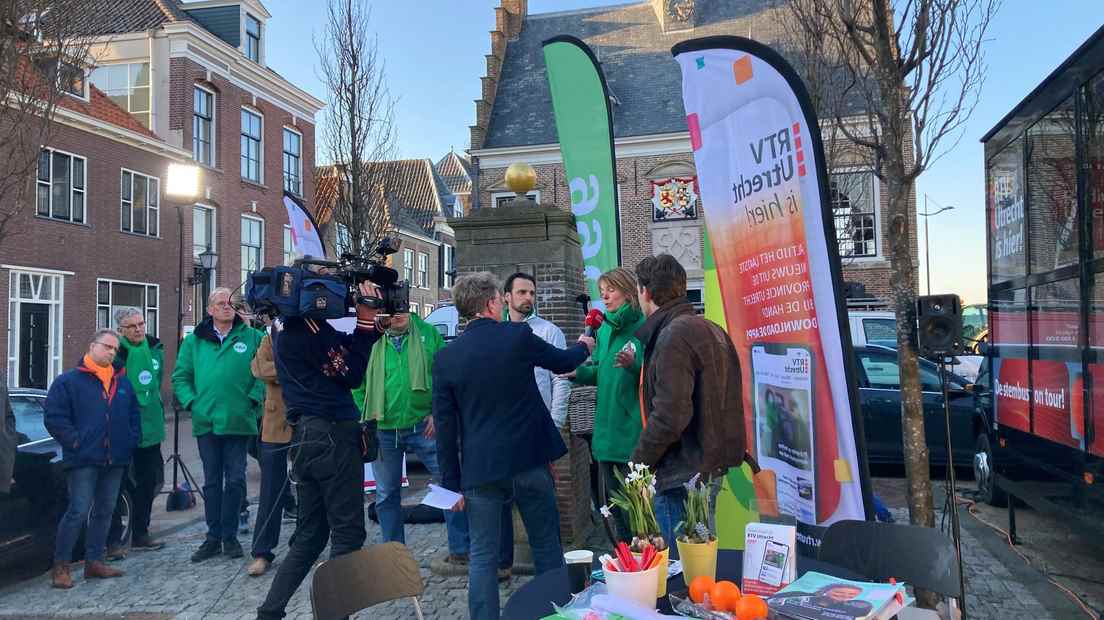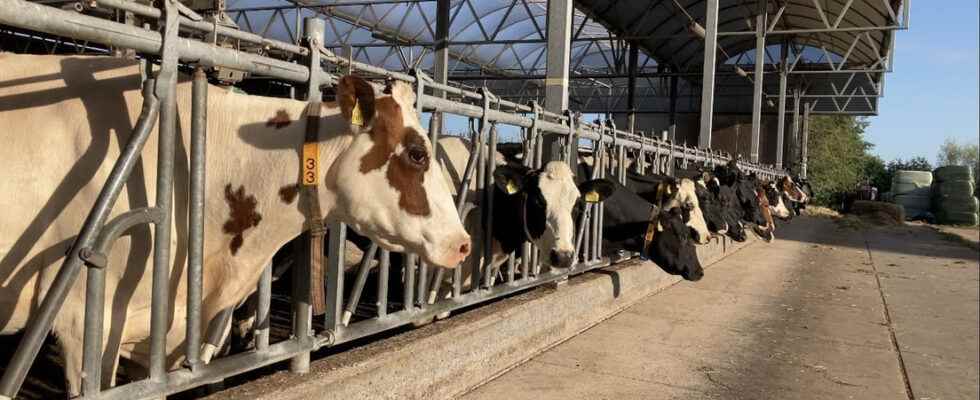AMEIDE – In Vijfheerenlanden, these elections are also about the farmers. In the middle of the web of nitrogen, climate and cows, the parties in the largest rural municipality of Utrecht are trying to find their way. But then how?
When farmer Gerrit de Jong wakes up and sees his 85 dairy cows in the Meerkerk polder, it couldn’t be more beautiful for him. “Just beautiful. And it will remain so, because my son is going to take over. But the question is how our future generation of farmers can do that. We are slowly getting into the rules.”
Move with the times
Don’t get him wrong, he does want to change. “History has taught us that farmers should always move with the times. We just have to be realistic. If I have fewer than 85 cows, as some parties want, it will be a lot more difficult for me to make ends meet.”
Gerrit also knows that many policies relating to his type of companies are regulated nationally. Why are local parties now also competing for the peasant vote? “Because the municipality has more influence than you sometimes think,” he says. For example, consider the environmental vision. In it, the municipality thinks for the long term about the future of industrial estates, windmills and farms, among other things.
B&B in the yard
But the municipality also considers whether a farmer can start a farm campsite, set up a B&B in the yard and how much of his land can be built on. In the debate of RTV Utrecht, 4 parties from Vijfheerenlanden therefore discussed this. What do ‘we’ do with the farmer in this municipality?
The SGP can be brief about it: leave the responsibility with the farmer. “As a municipality, we shouldn’t get involved in that,” he says. Yes, farmers can do it themselves, says Marieke van der Spek of the CDA. “Forcing them to do something? No, we are not going to impose that on them.”
If we have to make a turn as an agricultural municipality, we think we should help the farmers
But aren’t we ignoring the nitrogen reduction that must be achieved? “We are faced with a task to emit less, so it is better to help farmers to achieve that than to let them solve it on their own,” explains Erik van Doorn of GroenLinks. “Help farmers who turn around give their cows more space.”

Fewer cows per farmer?
Of course, says Jaap Breur of D66, there are many things that farmers can best decide for themselves, but: “Vijfheerenlanden is in the top 5 municipalities with the most CO2 emissions, and we have to change that. due to the peat meadow areas, because the water level – put simply – is now low, those areas emit a lot of CO2. Together we can see how we can improve this.”
Fewer cows per farmer, leave everything the same or look at alternative means of livelihood. Entering into a debate about farmers also evokes emotion in Vijfheerenlanden. “If we have to make a turn as an agricultural municipality, we believe that we should help farmers to set up a farm campsite, for example,” says Van Doorn (GroenLinks).
Farm campsites as an alternative
Van der Spek (CDA) nods. “Not every farmer will want it, but our municipality must have room in the environmental vision to enable this type of country shop, for example. It can be a nice addition to their existing company. I think people from the city would love it.” if they are allowed to sleep on a farm.”
Farmer Gert-Jan Kool listens in on the sidelines. “It’s about me and my colleagues, isn’t it,” says the organic farmer. “I especially hope that the municipality will think together with us, and not just talk about us. Let them start buying our milk for the town hall.”
More election news and other information can be found in our UKiest file.
